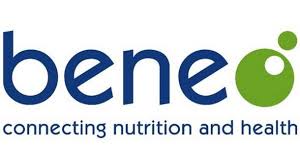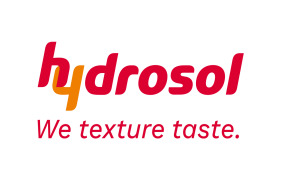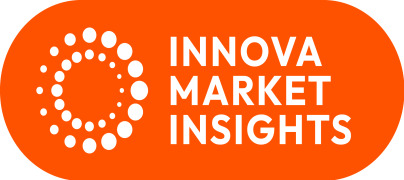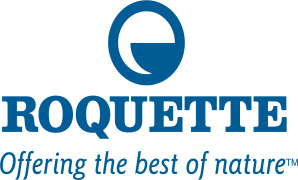News
Allergen-free foods gain momentum
5 Nov 2018Launches of allergen-free foods have increased in recent years – and not just because of increased prevalence of food allergy.

More Europeans than ever are thought to suffer from a food allergy, with up to 17% of the population now affected, according to the European Academy of Allergy and Clinical Immunology. Prevalence is more common among children, and allergic reactions can be very serious, sometimes even fatal, meaning food manufacturers are under pressure to ensure their foods are safe for allergic consumers.
Under EU law, the food industry must list the 14 most common food allergens on product packaging: peanuts, tree nuts, soybeans, mustard, eggs, lupin, milk, fish, cereals containing gluten, celery, sesame, sulphur dioxide, molluscs and crustaceans. For products that do not intentionally contain these ingredients, current industry best practice is to take precautions to avoid cross contamination and to alert consumers to their possible presence.
However, a growing number of companies has started producing allergen-free foods and drinks. According to Euromonitor International, total free from sales in Western Europe increased 11.7% in 2017, and 8.7% in Eastern Europe – and most of the sales growth did not come from consumers with allergies. In particular, foods and drinks with a lactose-free or gluten-free positioning have gained a strong presence, with many consumers identifying such products as healthier and easier to digest, and reporting that they feel better consuming them.
Plant-based milk and dairy alternatives have been a key driver for the lactose-free market, as a growing number of consumers choose to switch out cow’s milk, often citing health, animal welfare and environmental reasons, rather than allergies. Indeed, the global market for dairy alternatives drinks alone has more than doubled in value since 2010, according to Innova Market Insights, and new dairy alternative product launches grew 20% a year from 2012 to 2016.
Meanwhile, naturally gluten free grains and pseudo-grains, such as amaranth, quinoa, chia and sorghum are on the rise, offering a nutritional boost and improved texture in gluten free baked goods and snacks. According to Mintel, the number of new foods and drinks launched globally containing chia, for example, grew 70% from 2014 to 2015, while those containing quinoa rose 27%.
This rapidly rising interest in allergen-free products has prompted ingredient companies to develop new ingredients for the allergen-free market, and to highlight existing ones. Companies including Palsgaard, Hydrosol and DuPont Nutrition & Health have introduced ingredients to deal with the taste, stability and textural issues that many plant-derived dairy alternatives face, while Jungbunzlauer has launched a range of minerals specifically for fortifying such products. Avebe and Roquette highlight their potato protein and pea protein ingredients respectively for their allergen-free credentials, while BENEO has a strong allergen-free platform for its specialty rice ingredients.
According to Mintel, the ‘health halo’ of allergen-free foods and drinks is a key purchase driver, but their nutritional profile must match consumer expectations for healthy products. Its research found that over half of UK free from consumers would stop eating these products if they thought they were less healthy than standard foods, such as being higher in sugar or salt.
Food allergies may not be the main market driver, but their increasing prevalence means many more people live in households where certain ingredients are off limits for the whole family, and these non-allergic consumers are looking for alternatives too. As a result, the rise of allergen-free foods looks set to continue as it taps into so many current market trends, including for more sustainable, more wholesome and minimally processed foods.
Related news

Retail landscape lacks nutritious and affordable food, says ATNi
30 Dec 2025
A rapid increase in modern food retail has given retailers growing influence over consumer diets, according to global non-profit ATNi’s latest assessment.
Read more
Debate over ban on ‘meaty’ names for plant-based products reaches stalemate
26 Dec 2025
The debate over a ban on plant-based products using “meaty” terms has reached a stalemate, leaving manufacturers in limbo and still facing overhauls to their marketing and packaging.
Read more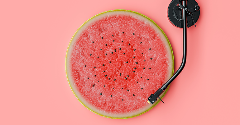
Multi-sensory food and drink products to gain traction in 2026
16 Dec 2025
Trend forecasters predict that sensory elements will play a larger role, helping food and beverage brands differentiate themselves in a competitive market in 2026.
Read more
Big appetite for M&A between European and US food and drink companies
3 Dec 2025
Persistent tariffs on EU food and beverage exports have helped drive record levels of M&A activity between European and US companies this year, according to analysis by ING.
Read more
Non-UPF Program extends certification scheme to entire food industry
30 Nov 2025
The Non-UPF Program has extended its certification scheme to the wider food sector, championing a move towards healthier consumption habits.
Read more
Lancet study links UPFs to chronic disease risk
26 Nov 2025
UPFs are consistently associated with an increased risk of diet-related chronic diseases, according to a comprehensive review of global evidence in The Lancet .
Read more
Concerns swirl around cinnamon’s compliance with EU law
25 Nov 2025
Cinnamon may be a top functional ingredient, but it needs stronger protocols to ensure it meets EU food safety laws and quality standards, say researchers.
Read more
Oat Barista: Innovation for game-changing beverages
20 Nov 2025
Oat Barista is a clean label, sustainable, and innovative drink base specifically designed to create the perfect foam in one single ingredient.
Read more
How younger consumers are redefining ingredient choices and rejecting brand loyalty
18 Nov 2025
Gen Z and millennial consumers’ preferences for transparency, functionality, and purpose are “redefining the very nature of consumption itself”, says SPINS.
Read more
Hybrid formats and flexible positioning to disrupt category norms in 2026
17 Nov 2025
Trend forecasters expect food and drink to move more fluidly across occasions, functions, and formats as consumers seek versatility, novelty, and convenience.
Read more
